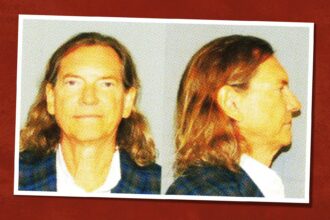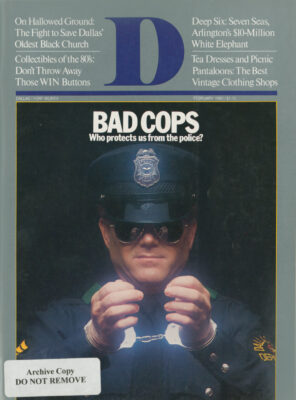The miracle of the domestic tragedy, Kramer vs. Kramer, is that the divorced parents (Dustin Hoffman and Meryl Streep) and their little boy (Justin Henry) are all believable human beings instead of husband, wife, and kid. At the beginning of the film, Ted Kramer is a driven, self-centered advertising executive, oblivious to his family; Joanna Kramer is an equally classic stifled woman, ready to break. In desperation, Joanna walks out; the heart of the film shows us Ted’s encounters with the novel world of fatherhood, with French toast, stitches, and discipline problems. All this could have had a very familiar ring, but Kramer vs. Kramer is so well-acted and so genuine in its details that we seem to be encountering these domestic problems for the first time. In the climactic court scene, where Joanna and Ted fight for custody of their son, Hoffman asserts that he’s earned the right to be a father. We believe him; we’ve seen it happen.
Hoffman’s performance is impeccable, and Meryl Streep uses even the briefest scenes to create her character, struggling with the necessity and costs of independence. Howard Duff stands out in the strong supporting cast. One of the year’s best; writer-director Robert Benton (Bad Company, The Late Show) has become one of our most versatile film artists, with a sense of casting like the Midas Touch.
In the curious case of Chapter Two, charisma comes almost solely from Marsha Mason, who seems to be inhabiting a different film than her coplayers. The movie is almost geometrically plotted by Neil Simon: Recently widowed George (James Caan) is met at the airport by his brother Leo (Joseph Bologna). Recently divorced Jennie (Marsha Mason) is met at the airport by her friend Faye (Valerie Harper). Leo and Faye, old friends, try to line up George and Jennie, who eventually decide to look each other over in person for five minutes. They court and marry quickly. The film is mostly about George’s grief and guilt over his dead wife and Jennie’s passionate suit on behalf of life and happiness.
Mason handles Simon’s quips deftly. (He: “I feel inept.” She: “You’re ept.”) But she is most memorable at conveying a kind of staunch vulnerability. Few faces so accurately register feeling: When Mason is close to tears, her whole face seems to tremble, her skin flushing. Most performers give us photogenic tears. Mason gives us the truthful, messy reality.
She is so real in this movie, in fact, that everyone and everything else seem like, well, a movie. George’s place is not so much lived in as set-decorated. His magazines hang in a rack as if in a library, not a home. Caan and Bologna and Harper speak dialogue, not conversation; their language, relentlessly jokey, masks feeling. And the whole movie has an ad-slick surface that undercuts its ostensible meaning.
Mason gives the best performance of her screen career in this film – with little visible means of support.
Possibly the most offbeat menage à trois in the history of movies involves a former champion rodeo cowboy (Robert Redford), a horse called Rising Star, and a TV reporter (Jane Fonda) in The Electric Horseman. The horse has been doped up to act subdued on a Las Vegas stage. The cowboy has been boozed up since his championship days, in order to stomach promoting something called Ranch Breakfast. (During halftime at nighttime football games, he rides around the stadium wearing more lights than a Christmas tree.)
So the cowboy gets on the horse and rides out of the night-club, through the gaming rooms, and into the neon Vegas night. They are soon followed by the TV reporter, who is so dogged on the trail of a story she must have been weaned on The Front Page. The cowboy wants to set the horse, and himself, free. It’s the kind of myth that might have been invented expressly for the teaming of Red-ford and Fonda. They are luminous stars and superb character actors. Director Sydney Pollock should get the Chemistry Award of the season.
Ponce de León started the rumor that the Fountain of Youth was located in the state of Florida. Wrong. It was the state of mind, as Going in Style reminds us. Joe (George Burns), Al (Art Carney), and Willie (Lee) Strasberg) find that they feel younger when they put on Groucho masks and stick up the Union Marine Bank in Manhattan. They liberate it of $35,555, and themselves from the Queens park bench set. The heist is so engaging in its dizzy lack of style that the rest of the movie – which includes two deaths and a prison term – plays like a drawn out wake without booze. A pity, because there are some golden moments about growing old in body if not in mind. The dandy music is by Michael Small. Written and directed by Martin Brest.
The Jerk. Or nerd, or turkey, or nonentity. For me, Steve Martin’s alleged humor is hard to locate. A guy with his pants around his ankles is funny? A guy being told the difference between Shinola and the other stuff and then stepping into the latter is humorous? If the outhouse had not existed, Steve Martin would have invented it. Carl Reiner misdirected, also giving himself a sappy cameo appearance. Watch where you step with this one.
What one sees in good movies when sober one might see in 1941 when smashed: coherence. It has a kind of boozy shape, like a drunk pinning you to your bar stool and telling you a string of tales. A Japanese sub decides to attack Hollywood. John Belushi, flying a P-40, wants to attack the sub. Robert Stack, in the movie’s best and most restrained performance, just wants to see Dumbo. Some of the special effects are wild – a Ferris wheel rolling off a pier and into the ocean – but the whole shooting match plays like an overblown skit from “Saturday Night Live.” The usually restrained Steven Spielberg – well, almost restrained on Close Encounters – directs as if on a weekend binge. A new rating should be invented for this one: DO (Drunks Only).
Star Trek – The Motion Picture. “The only movie to surpass this one,” Arthur C. Clarke is reported to have said about 2001, “will be made on location.” This movie looks as if it were made in outer space, and it figures – Paramount pictures, with a sort of belt-and-suspenders caution, hired Douglas Trumbull (special effects for 2001 and Close Encounters) and John Dykstra (special effects for Star Wars and Battlestar Galactica) to perform movie magic for Star Trek. The film resembles 2001 in its sense of wonder and awe. Director Robert Wise, in the Fifties, made a science fiction classic called The Day the Earth Stood Still; now he has made another. Gene Roddenberry, who created the television series and produced this film, should be floating on cloud nine. And his movie, at warp five, should give Star Wars, the top-grossing movie of all time, a run for box-office king. Apparently there is life after TV.
Promises in the Dark. Marsha Mason plays a divorced woman again, a doctor who takes over the case of 17-year-old Elizabeth (Kathleen Beller) when the girl’s regular doctor is on vacation. The girl’s apparently routine broken leg turns out to be terminal cancer. The relationship between doctor and patient keeps shifting – like a mother and daughter, they become all things to each other. Mason and Beller perform their scenes together almost sym-biotically, taking us somewhere beyond the inevitable tears. Like many of us, the Mason character lives a kind of death-in-life until she finds a way to honor dying. Jerome Hellman’s direction is so visually intuitive that one could almost understand the film without Loring Mandel’s dialogue.
The Rose is as sensitive as her name and as spiky as a thorn. She has a mouth that should be registered as a deadly weapon and a dangerous habit of throwing bottles of booze at men when not throwing booze and pills down her throat. Yes, folks, it’s another show-biz bio (loosely based on Janis Joplin’s life) about the Bitch Goddess Success and the need for love. But Bette Midler fuels at least half the show with high-octane energy, proving that a good singer is a good performer. And Frederick Forrest, playing her boyfriend, establishes here and as Chef in Apocalypse Now that he is as variously brilliant as a rainbow.
The Magician of Lublin. We’re supposed to be in the Poland of 1901, but as soon as the magician (Alan Arkin) opens his mouth,we know we’re in Hollywood. Or New York.The magician wants to get out of the sticksand make it big in Warsaw and Paris. He getsa booking into a posh Warsaw theater on thepromise that he can fly, but mostly, he fliesinto the sack with any available woman.The movie takes a lusty long time getting toits theme: Flesh versus Spirit. Co-writer-director Menahem Golan, adapting theIsaac Bashevis Singer novel, should get anew casting director next film. Arkin hasproved often he is a splendid actor; as awould-be Lothario, alas, he is ludicrous.Louise Fletcher continues to demonstratethat her Oscar-winning performance in OneFlew Over the Cuckoo’s Nest was a fluke.Shelley Winters reveals, yet again, that noscenery is safe when she is around to chewit.
Get our weekly recap
Brings new meaning to the phrase Sunday Funday. No spam, ever.
Related Articles

Local News
Bill Hutchinson Pleads Guilty to Misdemeanor Sex Crime
The Dallas real estate operator and erstwhile reality TV star will serve time under home confinement and have to register as a sex offender.
By Tim Rogers

Restaurants & Bars
The Best Japanese Restaurants in Dallas
The quality and availability of Japanese cuisine in Dallas-Fort Worth has come a long way since the 1990s.
By Nataly Keomoungkhoun and Brian Reinhart

Home & Garden
One Editor’s Musings on Love and Letting Go (Of Stuff, That Is)
Memories are fickle. Stuff is forever. Space is limited.
By Jessica Otte


